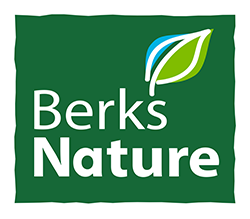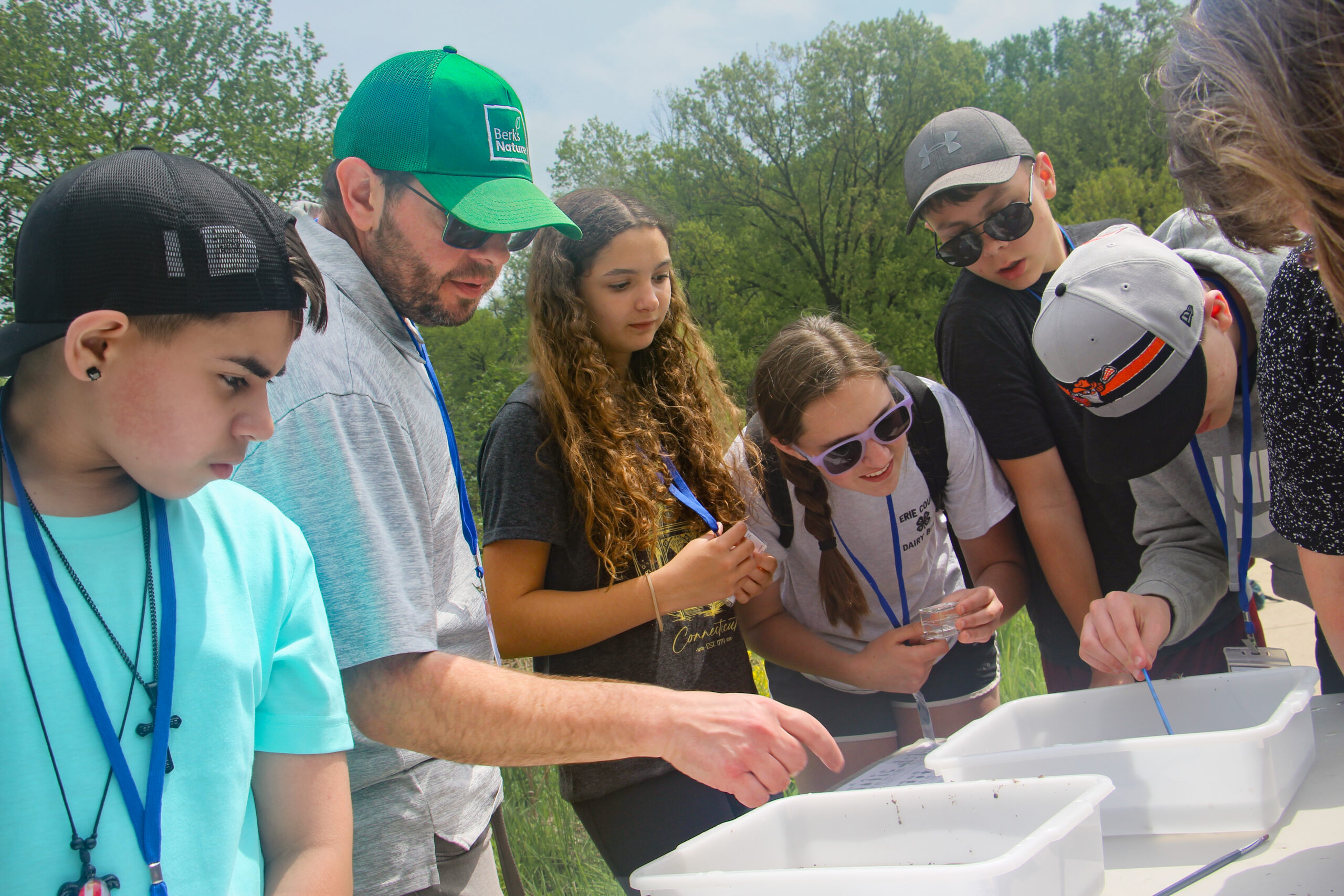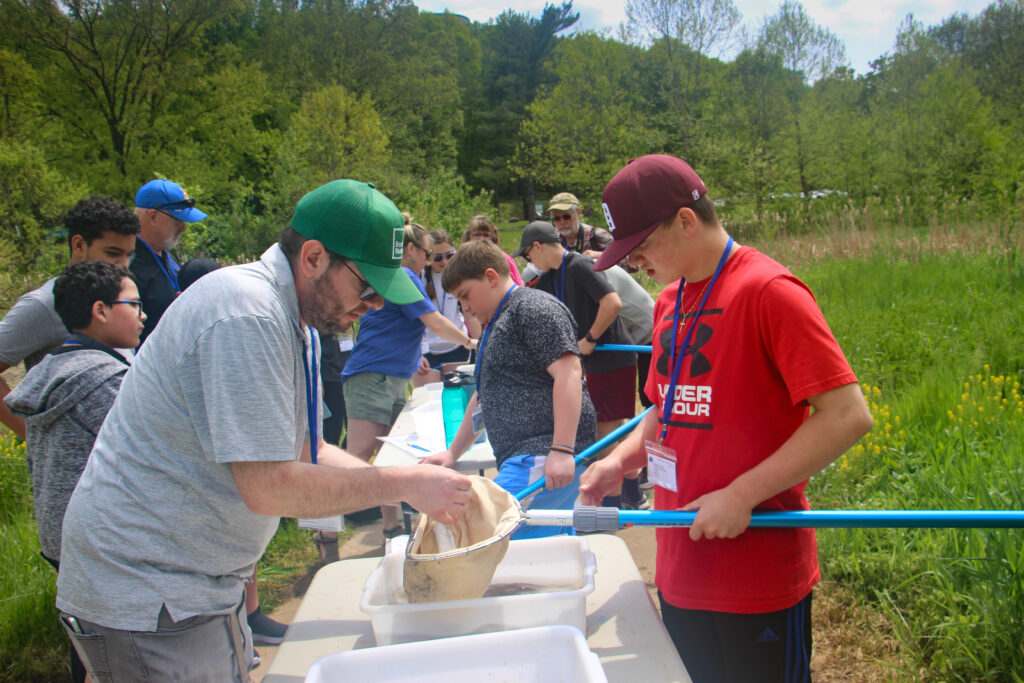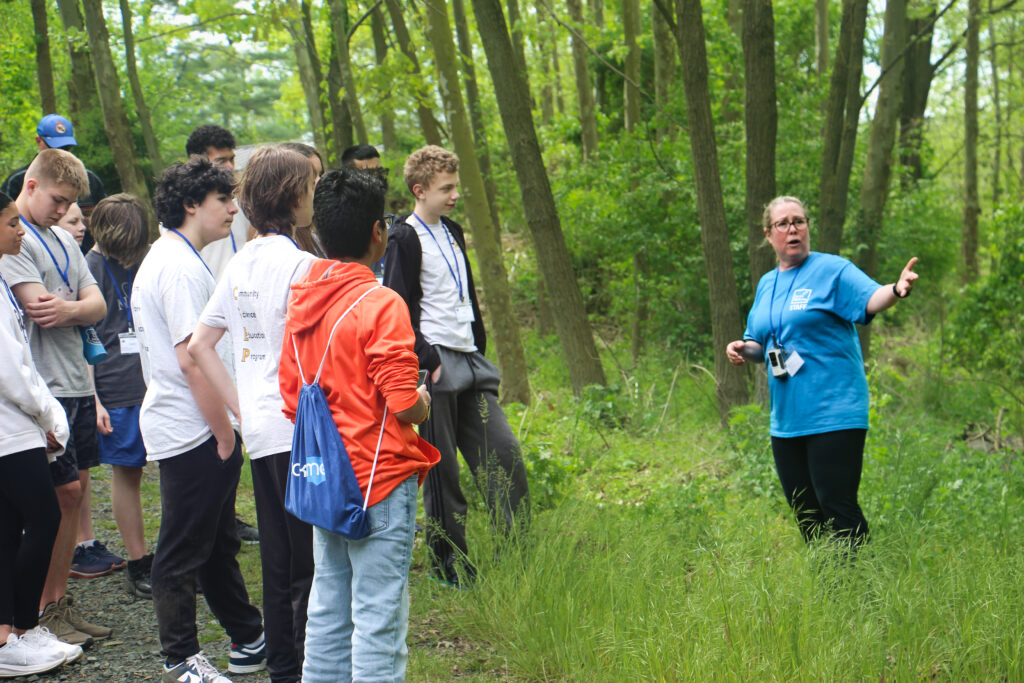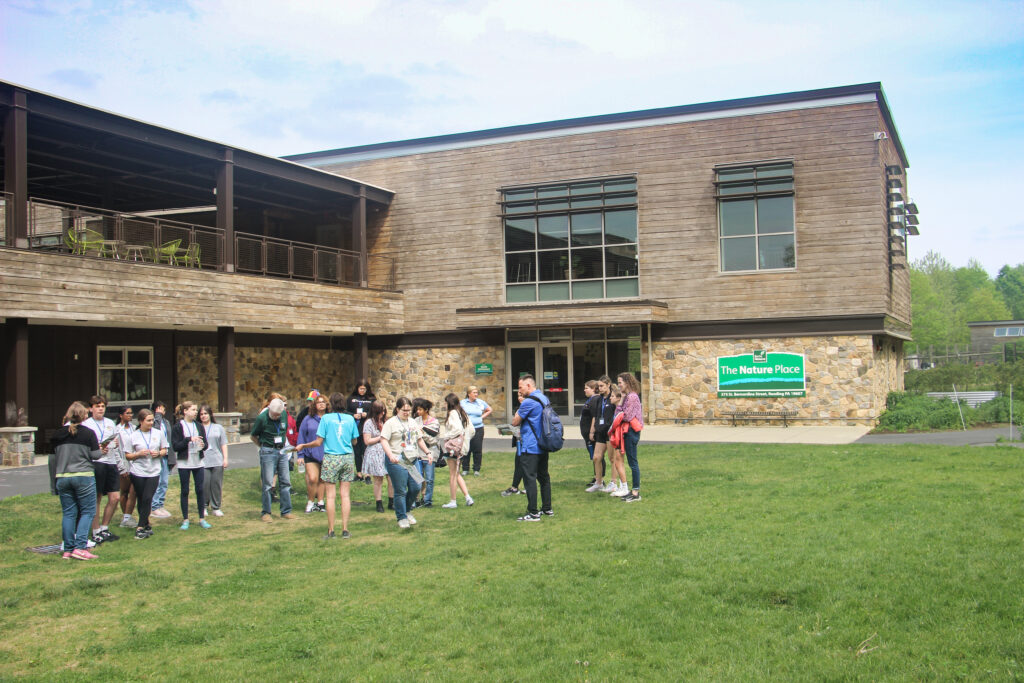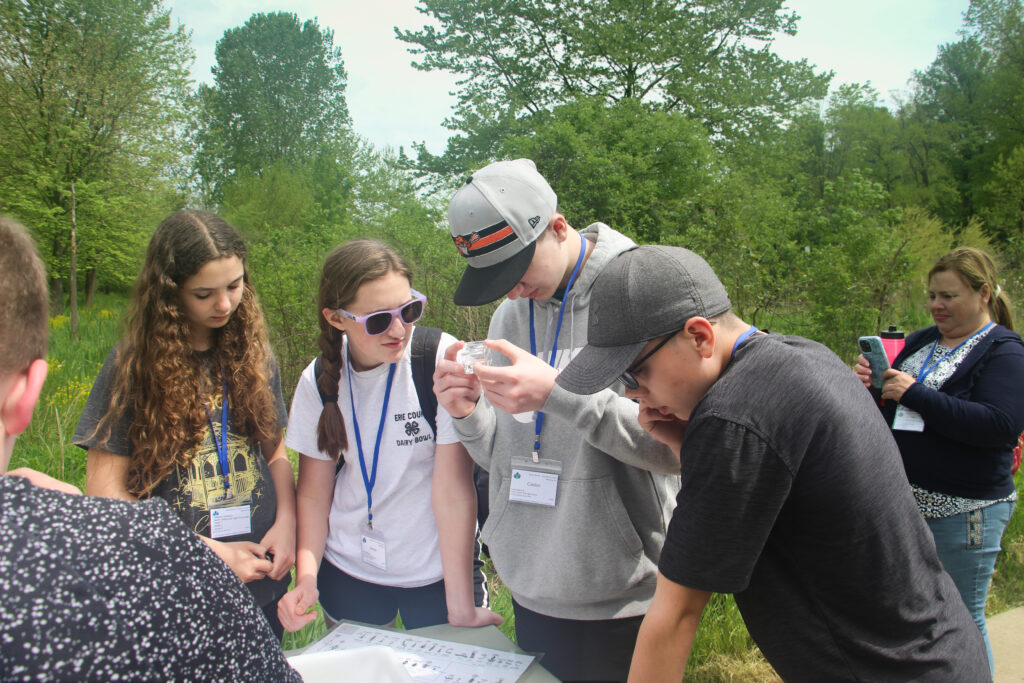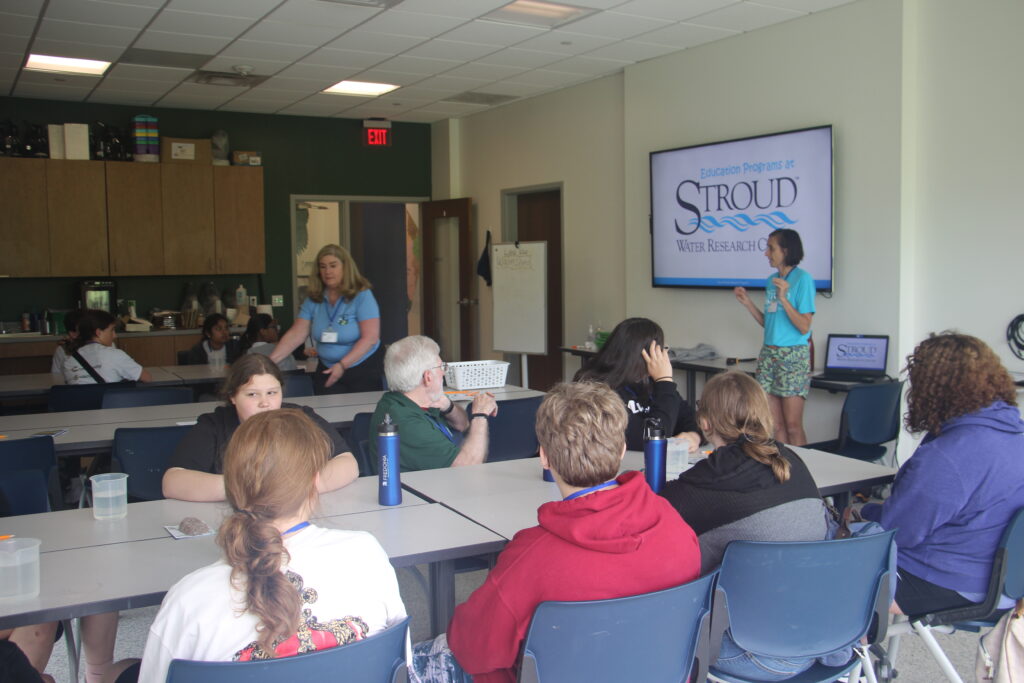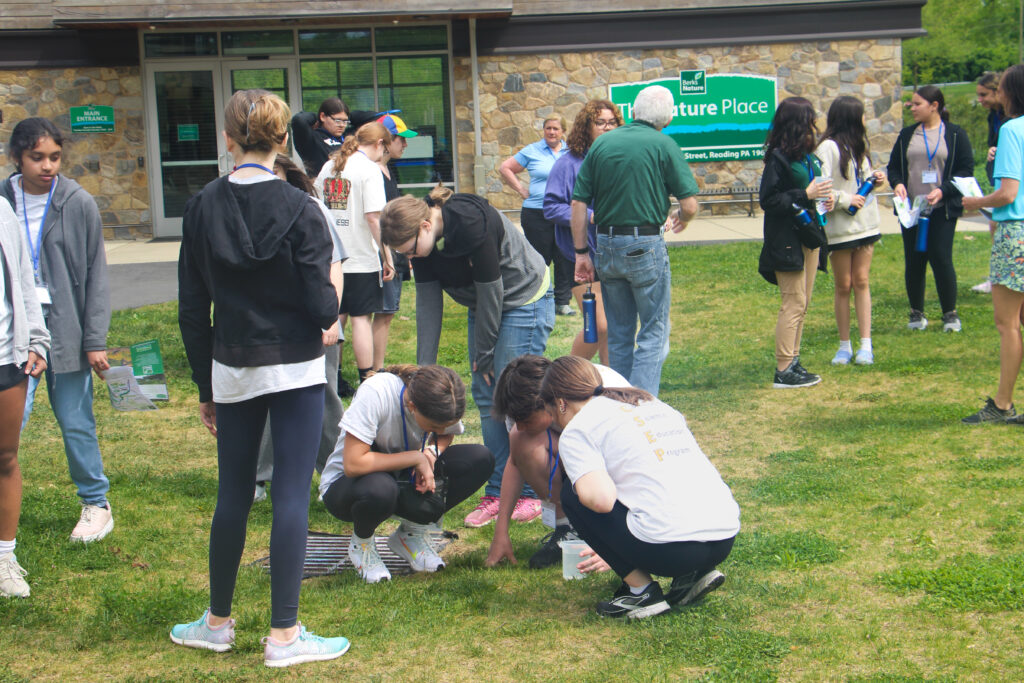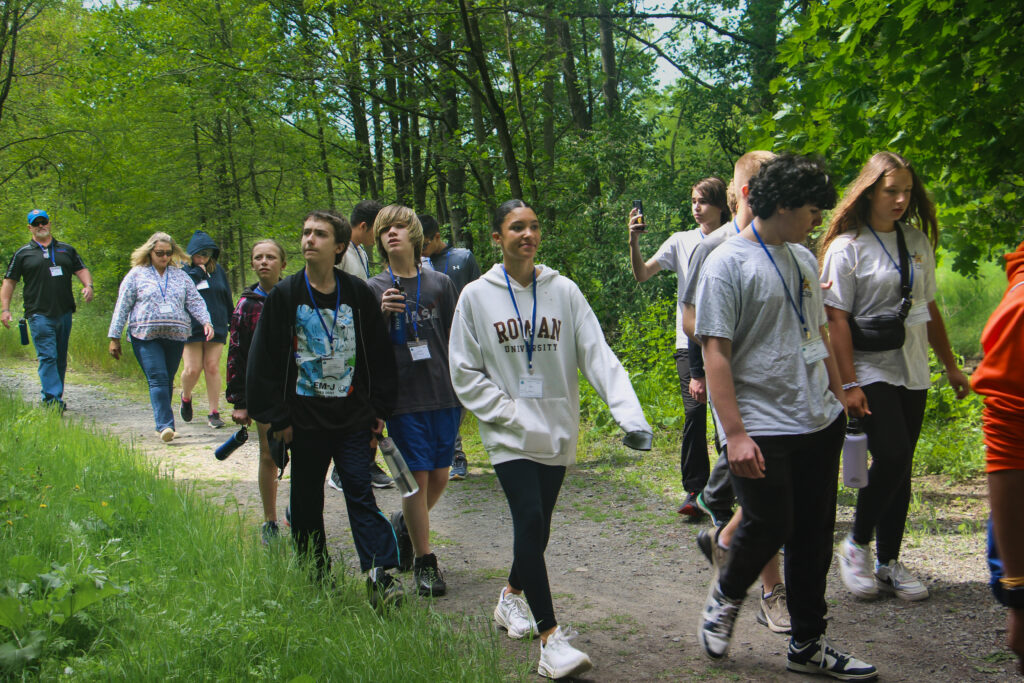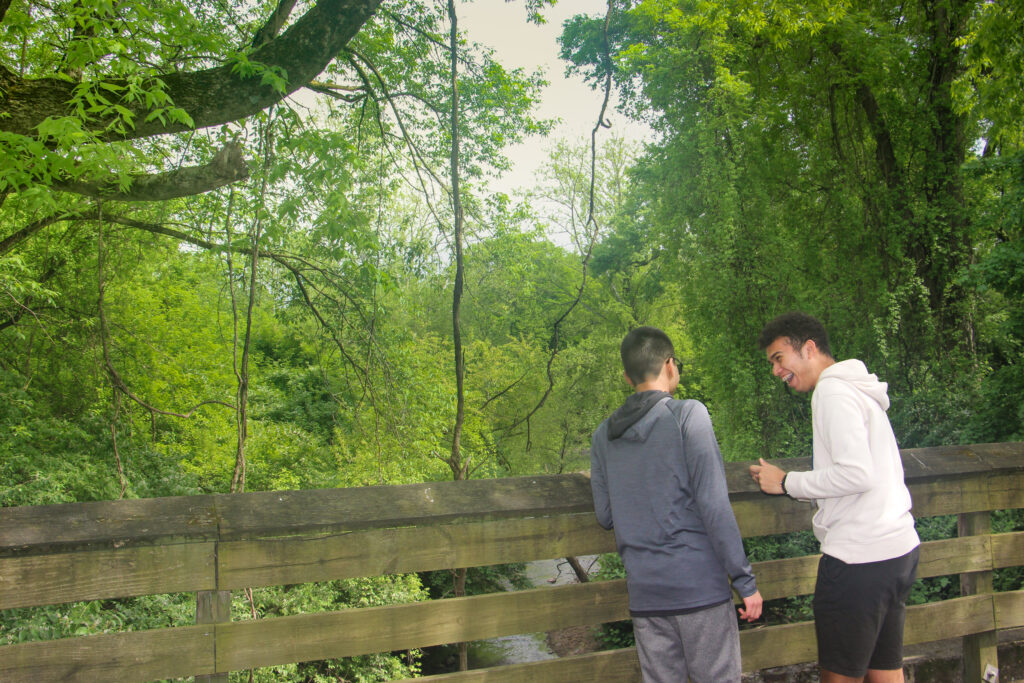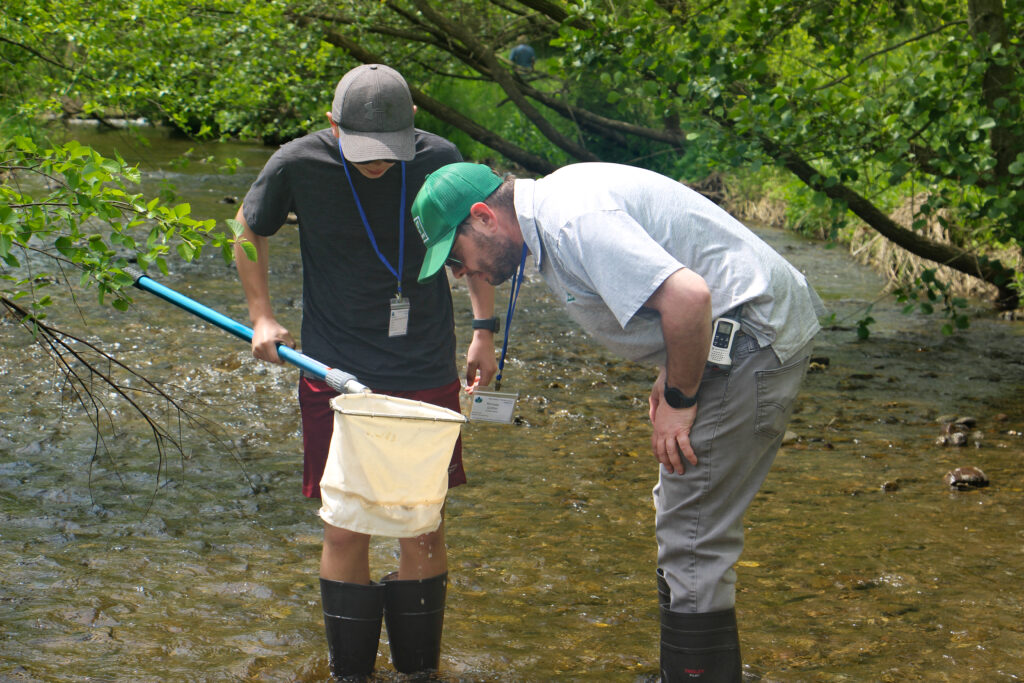In the face of unprecedented, global changes to our Earth’s delicate environmental systems, the need to meaningfully connect with and understand our natural world has never been greater. The next generation of our planet’s stewards has already been born and has embarked on their journey as environmental scientists!
In early May, Berks Nature proudly hosted 75 of these student researchers in celebration of their efforts to study and better understand our planet.
There is no better way to learn science, than by doing science; it’s a philosophy embodied by GLOBE: the Global Learning and Observation to Benefit the Environment Program. GLOBE is an international science and education program that focuses on environmental and science literacy for school-age children in order to increase environmental awareness, improve our scientific understanding of the Earth, and support student achievement in science and mathematics.
The GLOBE international community extends across 127 countries, engages 41,447 schools, and collects data from 278,267 community scientists (“GLOBE Observers”).
Each spring, a series of regional, GLOBE Student Research Symposia (SRS) are held for students in grades 5 through 12 to share and celebrate the results of their environmental research, performed using GLOBE’s data collection protocols and cloud-based database.
“The GLOBE program aims to increase scientific literacy and build connections between people that are passionate about the environment, and the SRS do both of those things,” explained Haley Wicklein, Assistant Country Coordinator for GLOBE, “Many of the students – and educators supporting them – are carrying out their own research for the first time, and taking the brave step of traveling outside of their hometown and their state to share their findings with others. They learn that they can do science and many comment on how much they enjoy meeting students from other states that share their passion.”
This year, the Northeast/Mid-Atlantic region’s SRS was hosted by Berks Nature at The Nature Place in Reading’s Angelica Creek Park.
Seventy-five students from nine schools across the Northeast/Mid-Atlantic region (which includes Delaware, Washington D.C., Connecticut, Maine, Maryland, Massachusetts, New Hampshire, New Jersey, New York, Pennsylvania, Rhode Island, Vermont, Virginia and West Virginia) gathered at The Nature Place to present, in poster presentation format, and celebrate their hard-earned data collection and analysis.
The symposium began on Friday with a series of immersive field research experiences at The Nature Place. The students took turns dipping in Angelica Creek to perform aquatic macroinvertebrate surveys, hiking through the woods to identify disruptive, invasive plants, and experimenting with watershed dynamics using Stroud Water Research Center’s Model My Watershed program.
Through these hands-on activities, these students were able to practice real-world environmental surveying and modeling, adding valuable tools to their growing STEM toolkit, and hopefully sparking new ideas for their next research project.
The research symposium’s main event, a research poster presentation session, was held atop The Nature Place in its rooftop deck and event space, overlooking the Angelica Creek – a site of active water quality monitoring and natural stormwater management measures.
Professionals in the fields of science, technology, engineering, and math (STEM) reviewed the research posters, engaging the student researchers in thoughtful discussions and providing recognition in five categories: GLOBE data, community impact, 21st Century skills, research process, and indigenous/community knowledge.
The symposium also included a peer review session, during which students were able to offer and receive feedback from one another.
In every way, the GLOBE Student Research Symposium was so much more than a “science report”.
Michael Griffith, Environmental Education Coordinator and Watershed Specialist with Berks Nature, explained, “When kids do a science fair at school, once it’s done that data is gone. But GLOBE’s data stays, uploaded onto the cloud-based database, with real world implications for an international community of scientists!”
It is this integration of community science with the classroom curriculum that makes the GLOBE approach to STEM-education, and its Student Research Symposium, so unique and powerful.
“When students create their own research questions and gather authentic data to submit to an international audience, they have a sense of accomplishment and a dedication to work towards a healthy and clean environment,” said Allison Mackley, Vice President for Education at Berks Nature, “As we say at Berks Nature, ‘Nature is essential to our quality of life.’ These students are learning about the real impact they can make in our world.”
For these are the next generation of our planet’s stewards, and it is more crucial than ever that they feel empowered and impassioned to protect it.
This year’s SRS is supported by NASA (Grant and Cooperative Agreement No. NNX17AD75A) and Youth Learning as Citizen Environmental Scientists (YLACES).
